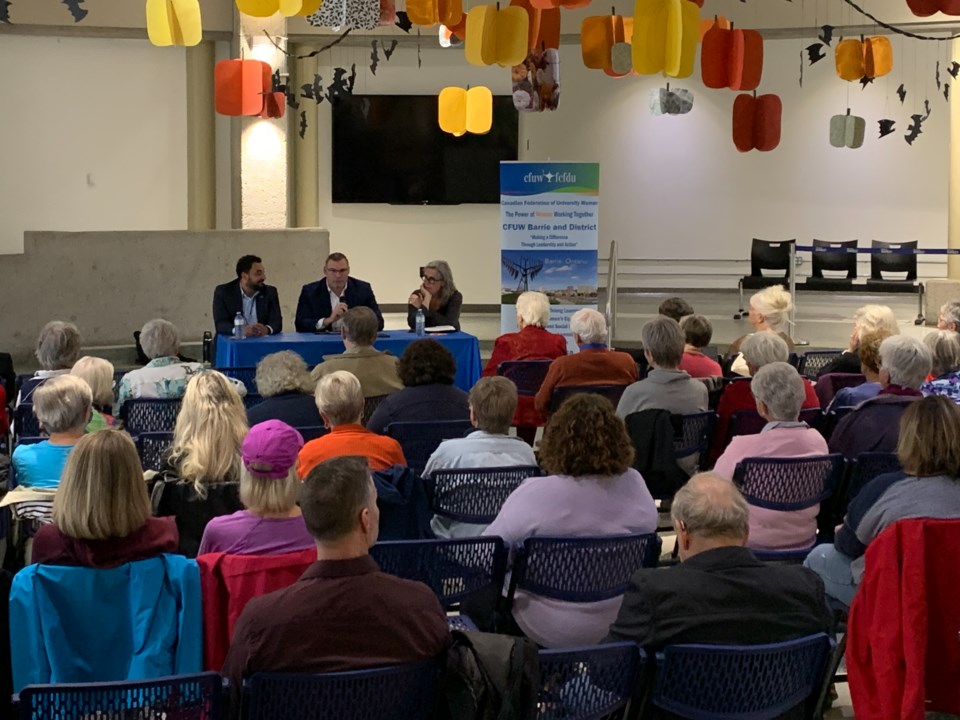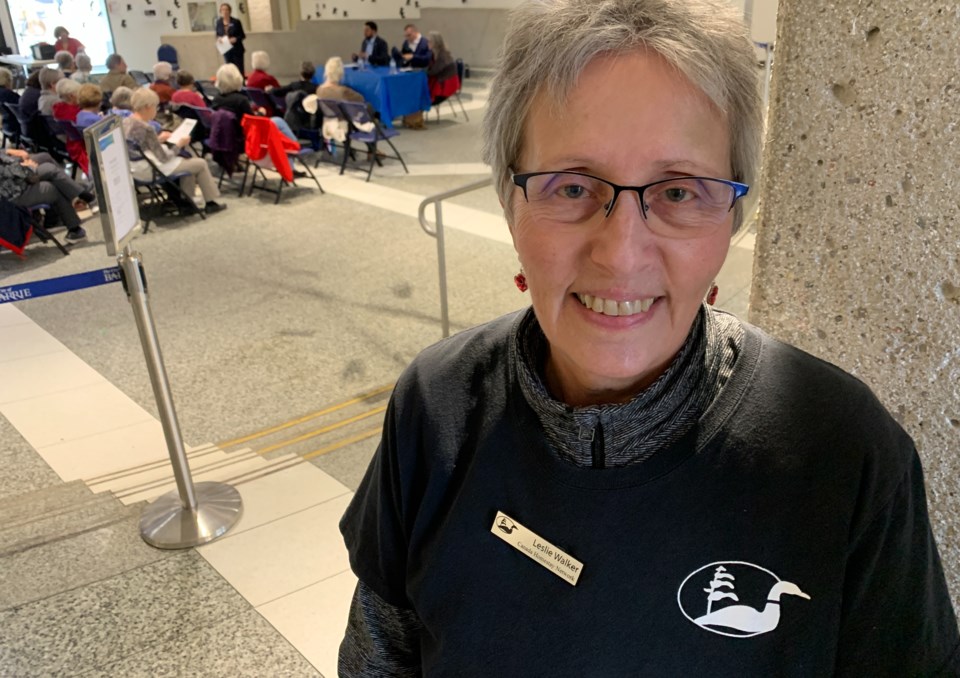Leslie Walker would love to be able to live close to her children south of Barrie, but the ever-increasing cost of rent has made that dream virtually impossible.
The 68-year-old currently lives in a rent-controlled apartment in Barrie, where she pays approximately $1,600 per month in rent.
“My son lives in Stouffville and I live in Barrie. It’s an hour-and-a-half away. I would like to live closer just to have support, but I can’t. To find something anywhere else under rent control is absolutely impossible,” she says.
Walker’s sister lives in Newmarket in an apartment built in 2018. It's not rent-controlled and she was recently informed of a $600 per month increase in her rent.
“My increase was $40. I can at least manage that,” Walker said.
The Barrie senior, who is still working full-time, says she has also been taking in college students to help cover a portion of the rent.
“They make their own food. I get $600 a month for each of them, which is $1,200 a month towards my rent. I can't get that in Markham or Stouffville, so I am stuck," Walker said. "I am away from my support system, I am away from my friends.

“I was searching (for a new place) before 2018 and there is no point in searching anymore. Even a one-bedroom basement apartment is over $2,000," she added.
According to the provincial government, the rent increase guideline for 2024 is 2.5 per cent, which is the maximum a landlord can increase most tenants’ rent during a year without the approval of the Landlord and Tenant Board.
That guideline applies to most private residential rental units covered by the Residential Tenancies Act, 2006.
However, it does not apply to new buildings, additions to existing buildings and most new basement apartments that are occupied for the first time for residential purposes after Nov. 15, 2018, rental units upon turnover of a tenancy, community housing units, long-term care homes or commercial properties.
This has left Walker facing an unknowns and stressful future.
“I can never retire for a start. That’s just not an option. If I retire, I don’t eat and I don’t live anywhere," she said. "There are people I know already who are being kicked out of their homes, just like my sister, because they want to raise the rent to have somebody else there.
“I have to be really, really careful and maintain my wellness. It’s really scary."
Walking around the city, and seeing the many people currently living on the street, she often wonders how long it could be before that could be her.
“I think, how close am I to that? It’s very close and it’s very upsetting. These people don’t mean to be homeless," Walker said.
In an effort to help find a solution to an issue that affects so many people, Walker attended Wednesday's Affordable Housing: Public Forum at Barrie City Hall.
She said it's important to her to be part of the solution.
“Affordable housing is really important to me, for my future and for my friends' future, for what I see in Barrie with the homelessness problem,” she said.
In addition host international students in her home, Walker takes advantage of the Barrie Good Food Box, which she said allows her to get approximately $30 worth of groceries for $20. Those two things are key ways that allow her to better cover costs, she said.
“Not everybody knows about them. Some of the solutions that are there are just not known and it’s very hard to get the message out," Walker said.
Yesterday’s forum, hosted by the Canadian Federation of University Women (CFUW) Barrie and District, brought together members of the community, as well as panel members Barrie Mayor Alex Nuttall, Mina Fayez-Bahgat, who is Simcoe County's general manager of social and community services, and Celia Chandler, deputy executive director of the Co-Operative Housing Federation of Toronto. They addressed the issues the city and region are facing, as well as attempted to come up with solutions on how to address them moving forward.
“More and more families are starting to fall through the cracks of the housing market, some even needing to choose between paying the mortgage or rent and buying groceries. There must be a better way,” the CFUW's Carol Phillips said prior to the event.
“There are examples of dignified, affordable housing alternatives here in Canada and elsewhere if only we took off the blinders and stopped allowing developers to narrow down the choices.”
Fayez-Bahgat said he was invited to attend the forum to discuss issues around affordable housing in the county, and to offer information on what the county is doing now and into the future to fix the problem.
“I often say issues that arise out of the community, like the need for affordability, can often be addressed by the community itself, and this is a great example of that today,” he said.
“I just think the collaboration of bringing together the thought process from a broader approach and not just a service delivery approach often renders better outcomes, specifically on knowing how to customize the need to each community as each community is different," Fayez-Bahgat added.
